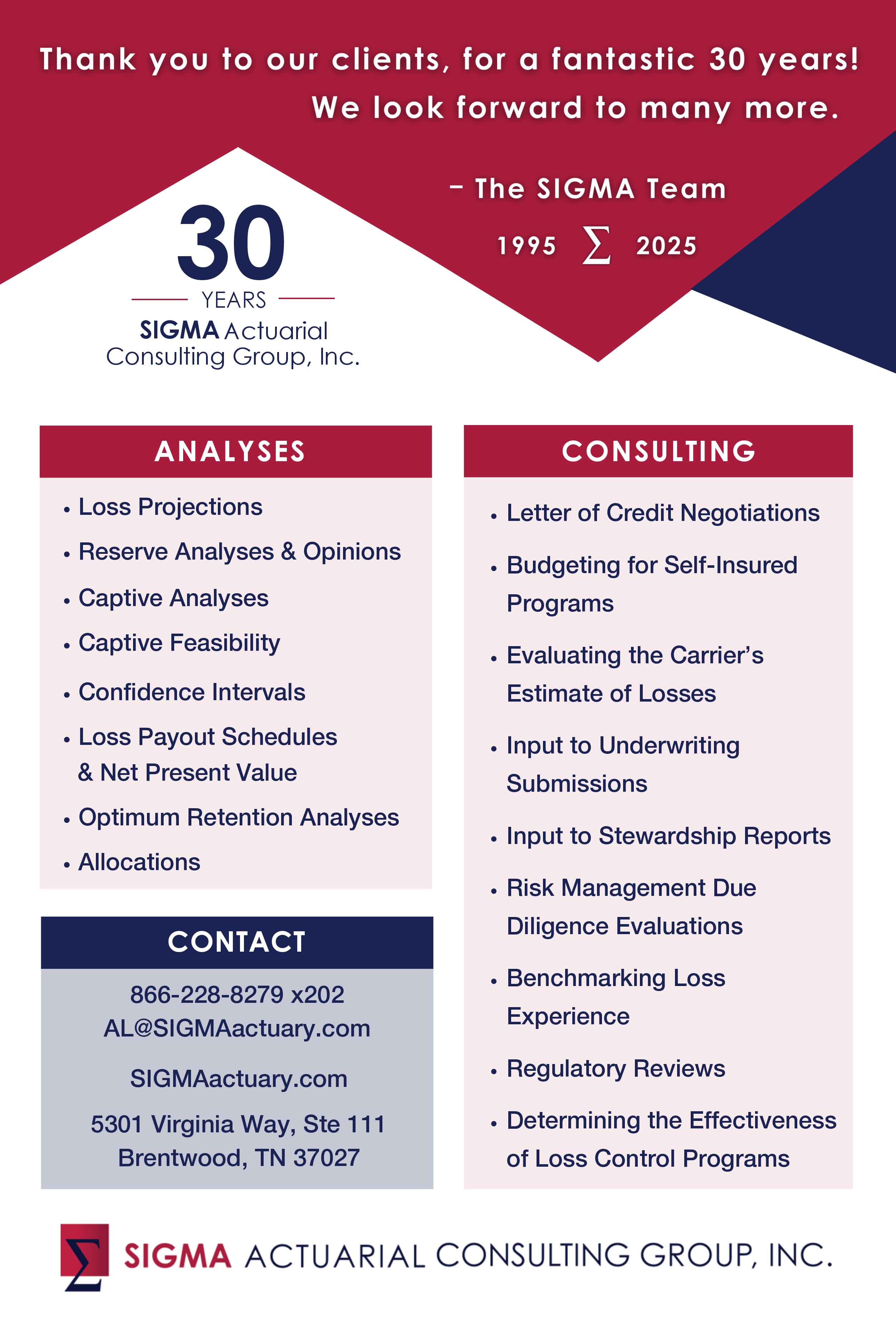Microsoft’s decision to settle with the State of Washington Insurance Commissioner could have interesting implications for the US captive market
In August, three months after it were issued a cease and desist order, Microsoft’s Arizona-based captive, Cypress Insurance, announced it had made a settlement agreement with the State of Washington Office of the Insurance Commissioner.
The decision to settle has only cost Microsoft $876,820—$573,905 in unpaid premium taxes and $302,915 in interest and penalties—but its cost to the captive insurance industry may be much greater.
Control alt desist
The cease and desist order issued by the State of Washington Office of the Insurance in May required the captive to stop transacting insurance without a licence and to pay tax on its written premiums. While Cypress is itself domiciled in Arizona, its sole insureds, Microsoft and its subsidiaries are based in Redmond, Washington.
Insurance companies are required by Washington state law to pay a two percent tax based on their written premiums, a revenue which is sent to the state general fund to pay for a variety of programmes.
According to the Office of the Insurance Commissioner, Cypress didn’t hold a certificate of authority to transact insurance in Washington State, didn’t hold a Washington state surplus line broker’s licence to place non-admitted insurance in the state, nor is insurance coverage provided by the captive placed through a surplus line broker licensed in the state.
Additionally, it claims Cypress has not paid premium tax on the $71,194,935 it collected between 2013 and 2018, representing $1,423,898.70 in unpaid premium tax.
According to the order, Cypress’s actions, therefore, violate “Revised Code of Washington (RCW) 48.05.030(1) (certificate of authority required), RCW 48.15.020(1) (solicitation by unauthorized insurer prohibited), RCW 48.17.060(1) (license required), RCW 48.14.020(1) (failing to remit two percent premium tax),and RCW 4S.14.060(l)-(2) (failing to timely remit two percent premium tax)”.
Industry outlook
John Dies, managing director of tax controversy at alliantgroup, believes the case is evidence that states are beginning to realise that captive insurance is robust and might generate revenue.
“What they didn’t realise is that many of the large corporations, like Microsoft, have captive insurance companies because they have the resources to compete with third-party coverage costs and know their own risks better.”
“If Microsoft doesn’t like the pricing that they’re getting on insurance, they have the resources to give themselves a better price by hiring actuaries. The state of Washington has realised that Microsoft was basically engaged in the insurance industry in the state but without the state’s permission.”
Matthew Queen, chief compliance officer and general counsel at Venture Captive Management, suggested that some of the arguments put forward by the State of Washington Office of the Insurance Commissioner “appear weak”.
He expanded: “In particular, Washington’s focus on the captive’s lack of a surplus lines broker’s license or the existence of a surplus lines broker should be irrelevant as Microsoft has the absolute right to purchase insurance from a non-admitted carrier pursuant to Allgeyer v Louisiana.”
Queen continued: “However, the public lacks the facts to assess the legal merits of the case and will never know the full story due to the decision to settle.”
“This trend is troubling in light of New Jersey’s Johnson & Johnson decision, which held that captives are subject to the NRRA and home states have the right to assess taxes based on the captive’s total gross written premiums–not just the premiums associated with the taxing state. This is a radical extension of state power that appears to violate the 14th Amendment’s Due Process Clause.”
“It appears that Washington has taken a similarly aggressive position with respect to its premiums taxes and intends to continue litigation on this front until it’s stopped by strong defence counsel.”
Footing the Bill
The cease and desist order, Order No.18-0220, issued to Cypress Insurance on 9 May prohibited the captive from engaging in or transacting the unauthorised business of insurance in the state of Washington, or seeking and obtaining insurance business in the state.
Additionally, it required the captive to cease and desist from soliciting state residents to purchase any insurance to be issued by any unauthorised insurer or induce them to purchase any insurance contract.
Dies suggested that Order No.18-0220, and its impact on Microsoft’s ability to cover its risks while the case was ongoing, played an important role in the company’s decision to settle.
He explained: “The cease and desist order was a huge piece of leverage. Basically, it says ‘stop all your insurance activities’, which chops off the captive’s ability to perform its function for Microsoft.”
“Cypress’ policies are very complex, so the act of getting everything together, making sure it works, finding alternative coverages and the risk of not having something in place when you do have a serious claim, is huge.”
“The cease and desist order was fairly substantial leverage. My assessment of the situation is, the fact that Microsoft was not in a position to immediately comply or put an alternative policy in place forced their hand on the issue.”
According to Queen, Microsoft’s decision to settle “reflects a reality about the American justice system”.
He said: “Justice is available, but it is frequently not worth the time or money. Defence costs and plea deals have reduced the speedy right to trial into the exception to the rule rather than the standard operating procedure.”
Copy and paste? Ramifications for the captive market
Following Microsoft’s settlement announcement, Mike Kreidler, the Washington state insurance commissioner, said he was pleased with the outcome and discussed his plans to turn his attention to more captives–a decision that could have a lasting influence on captives across the US.
He said: “Captives are a grey area in state law and this is the first case where we’ve tested them.”
“I encourage captives insuring risks in Washington—and that want to be proactive in the interest of fairness—to contact my office to start conversations about their portfolios. I want to make sure that all insurers pay their fair share as part of doing business here.”
Dies highlighted this as the biggest takeaway from the case, suggesting that it was a shot across the bows for captives in the state and a warning that they should make themselves known to the Office of the Commissioner or find themselves facing a similar fate to Microsoft.
Perhaps a more pressing issue, however, is whether other states will follow the example set by Washington.
“I don’t see this as an issue that’s going away,” said Dies, “I would expect other states may take this up, particularly when you look at how quickly Microsoft settled this case because of the leverage I mentioned.”
States will be left with a decision to make, on one hand, is the financial gain that stands to be attained from following Washington’s example, however, on the other is the danger that taking such an action will mean they gain a reputation as being unfriendly to captives.
“I guess it’s a revenue decision,” explained Dies. “Whether the revenue they’re losing by allowing insurers to be there without complying is greater than the revenue they will lose when the people say they no longer want to be domiciled there.”
According to Dies, it will not be as easy as just copy and pasting for other states to follow Washington’s footsteps.
He said: “The tricky part for states is going to be determining who is or isn’t complying. It’s not like there are filings that allow you to immediately find out every company and their state that has an active captive insurance company. The Microsoft company is hard to miss, but states are going to have a complex issue on their hands because they’re going to have to figure the economics of the situation with limited data.”
“Maybe the easy answer for all of them is if you’re the big ones, generate some revenue before coming up with a compliance-friendly policy that encourages people to come to you ahead of time, instead of making you chase and catch them to force compliance.”
Loading
While the rest of the US captive market waits for their state to process the situation and make a move, or indeed not make one, on this issue, companies in Washington with captives may be scrambling to ensure their affairs are in order.
JLT Insurance Management released a statement shortly after the settlement decision, advising “all clients who have parent companies with headquarters or operating units in Washington to consult with their tax professionals to determine their next steps if any”.
Dies has predicted that companies in Washington will be considering what their plan of action would be if they were the Commissioner’s next target.
He said: “At a large company in Washington right now, they will be looking to see what their plan B0 looks like if they get a cease and desist order, how quickly they can put something else in place and/or should they go ahead and move in that direction right now to avoid this all together and solve the problem before Washington raises this issue.”
Another question facing captives is whether the commissioner will retrospectively target companies that are no longer based in the state.
Dies commented: “Suppose they move their insurance carrier, suppose they get into compliance without being licensed in Washington, does the Office of the Commissioner still come after them for the years they had their unlicensed insurance with them? That just depends on the appetite of the commissioner, which is obviously, compared to other states, much more aggressive so far.”





